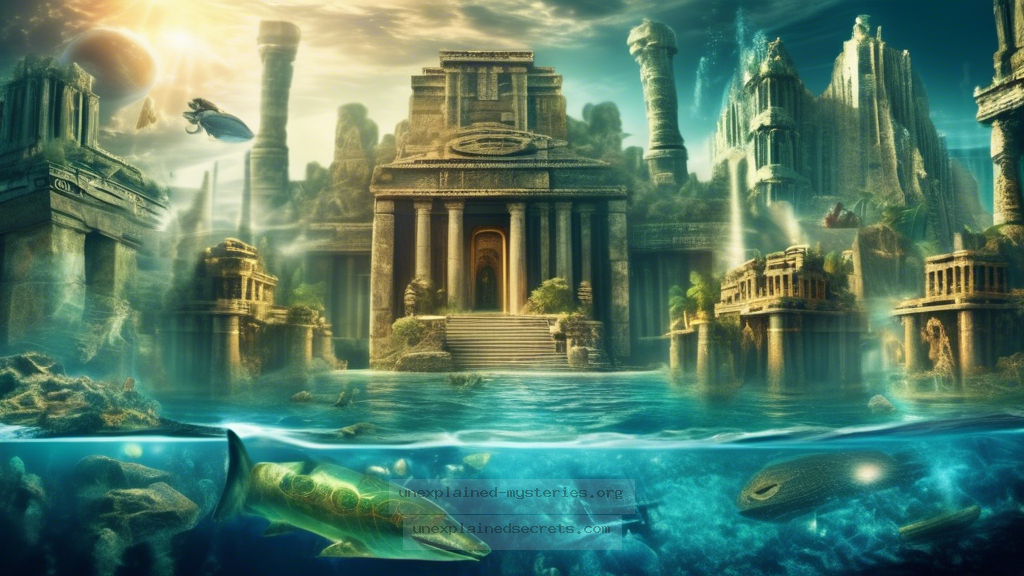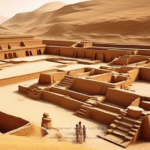What Happened to the Lost City of Atlantis: Myth or Reality?
What Happened to the Lost City of Atlantis: Myth or Reality?
The legend of Atlantis has captivated the minds of historians, archaeologists, and the general public for centuries. But what truly happened to this supposed advanced civilization? Was it a mere myth conjured by ancient philosophers, or is there a real historical basis for its existence? This question matters not just for scholars, but for anyone intrigued by the mysteries of our past. In this blog post, we will delve deep into the enigma of Atlantis, exploring the historical context, core theories, evidence, and implications of this ancient mystery.
Historical Context of Atlantis
The story of Atlantis originates from the works of the ancient Greek philosopher Plato, who first mentioned it in his dialogues “Timaeus” and “Critias” around 360 B.C. According to Plato, Atlantis was a powerful and technologically advanced civilization that existed about 9,000 years before his own time. He described it as a large island located beyond the “Pillars of Hercules” (modern-day Strait of Gibraltar) and depicted a society that was rich in resources and culture but eventually fell out of favor with the gods due to its moral decay.
Plato’s account raises questions about whether he intended to convey a historical truth or whether Atlantis was a fictional allegory meant to illustrate his philosophical ideas about hubris, morality, and the ideal state. However, the intrigue surrounding Atlantis has prompted numerous explorations and theories about its possible existence. Many have sought to locate the remnants of this lost city, leading to various claims and ongoing debates.
Core Concepts and Theories Surrounding Atlantis
Various theories have emerged about the potential locations of Atlantis, each with its own supporting evidence and critiques. Here are some of the most prominent theories:
- The Mediterranean Theory: Some scholars propose that Atlantis was located in the Mediterranean Sea, with Santorini (Thera) being a prime candidate. The volcanic eruption of Thera around 1600 B.C. caused significant destruction and could have inspired the Atlantis legend.
- The Caribbean Theory: This theory suggests that Atlantis was located in the Caribbean, possibly the island of Bimini. Proponents point to underwater formations, such as the “Bimini Road,” as evidence of lost civilization.
- The Antarctic Theory: Some researchers argue that the remnants of Atlantis could be hidden beneath the ice of Antarctica, as the continent has undergone significant geological changes over millennia.
- The Azores Theory: The Azores, a group of islands in the Atlantic, have also been suggested as remnants of Atlantis. These islands fit Plato’s descriptions of an island civilization.
Practical Evidence from Archaeological Discoveries
While no definitive evidence of Atlantis has been uncovered, several archaeological finds have sparked interest in potential connections to Plato’s story. Notable discoveries include:
- Akrotiri, Santorini: The ruins of this Minoan settlement were buried by the volcanic eruption of Thera, revealing advanced architecture and artwork. Some researchers draw parallels between Akrotiri and the descriptions of Atlantis.
- Göbekli Tepe, Turkey: This archaeological site, dating back to around 9600 B.C., features monumental structures and suggests that advanced societies existed much earlier than previously thought, potentially paralleling the technological prowess of Atlantis.
- Pillars of Hercules: The Strait of Gibraltar, identified by Plato as the boundary to Atlantis, has been the subject of extensive maritime studies, yet no conclusive evidence of a sunken civilization has been found.
Alternative Perspectives on the Atlantis Legend
Some historians and scholars argue against the notion that Atlantis was a real place. The idea of Atlantis as a cautionary tale serves as a philosophical guide rather than a historical account. Plato may have crafted the story of Atlantis to illustrate the consequences of moral degradation and the fallibility of even the mightiest civilizations. This perspective emphasizes the need for ethical governance and the dangers of hubris.
Additionally, some researchers suggest that the Atlantis myth may be a conflation of various cultural stories about lost civilizations, such as the biblical Flood narrative or the Sumerian Epic of Gilgamesh. These connections highlight a universal human fascination with the rise and fall of societies, suggesting that the Atlantis story may represent a collective memory rather than a specific historical account.
Common Misconceptions and Clarifications
The tale of Atlantis is riddled with misconceptions that often cloud public understanding. Here are some prevalent myths and clarifications:
- Myth: Atlantis was a highly advanced civilization with technology far beyond its time.
- Clarification: While Plato describes advanced technology, there is no archaeological evidence to support claims of superior technology. The advancements of known ancient civilizations like the Egyptians and Minoans were significant in their own rights.
- Myth: Atlantis was a continent that existed in the Atlantic Ocean.
- Clarification: Plato referred to Atlantis as an island, not a continent, and its supposed size and location are subject to interpretation.
Best Practices for Investigating Atlantis
For those interested in exploring the mystery of Atlantis, here are some best practices for investigation:
- Research Historical Sources: Start with primary sources, such as Plato’s dialogues, and analyze the historical context in which they were written.
- Engage with Archaeological Findings: Stay updated on ongoing archaeological research and findings that could shed light on ancient civilizations related to the Atlantis narrative.
- Consider Interdisciplinary Approaches: Combine insights from history, archaeology, geology, and anthropology to form a more comprehensive view of the subject.
- Participate in Discussions: Engage with academic forums, attend lectures, and converse with experts to broaden your understanding of the topic.
Future Developments and Ongoing Research
The search for Atlantis continues to intrigue researchers, with ongoing studies in oceanography, geology, and archaeology. Advanced technologies such as underwater scanning and satellite imagery may help uncover new evidence and provide clearer insights into potential locations. For instance, the use of LIDAR technology has already revealed hidden structures in previously unexplored areas, leading to exciting possibilities for future discoveries.
Furthermore, as climate change continues to reshape coastlines and ocean levels rise, new archaeological sites may emerge, offering clues about ancient civilizations that could be linked to the Atlantis legend. The ongoing debates surrounding Atlantis demonstrate that the quest for knowledge about our past is far from over.
Conclusion: The Enduring Mystery of Atlantis
The question of whether Atlantis was a myth or reality remains a captivating enigma. From its origins in Plato’s writings to modern theories and archaeological explorations, the legend continues to inspire curiosity and scholarly inquiry. Whether viewed as a philosophical allegory or a historical mystery, Atlantis serves as a reminder of the human fascination with lost civilizations and the moral lessons they impart.
As we continue to investigate the past, we must approach the story of Atlantis with an open mind, recognizing the complexities and nuances that shape our understanding of ancient cultures. The enduring allure of Atlantis will likely persist, fueling further research and exploration as we seek to uncover the truths hidden beneath the sands of time.
Other Articles
Recent Posts
- What Happened to Flight MH370? The Conspiracy Theories That Still Haunt Us
- What Secrets Lurk Within the Walls of the Infamous Trans-Allegheny Lunatic Asylum?
- What Evidence Supports the Existence of Bigfoot in the Pacific Northwest?
- What Happened to the Indus Valley Civilization? Unraveling the Mysteries of Ancient Urban Life
- Can Telepathy Be Scientifically Proven Through Laboratory Evidence?







